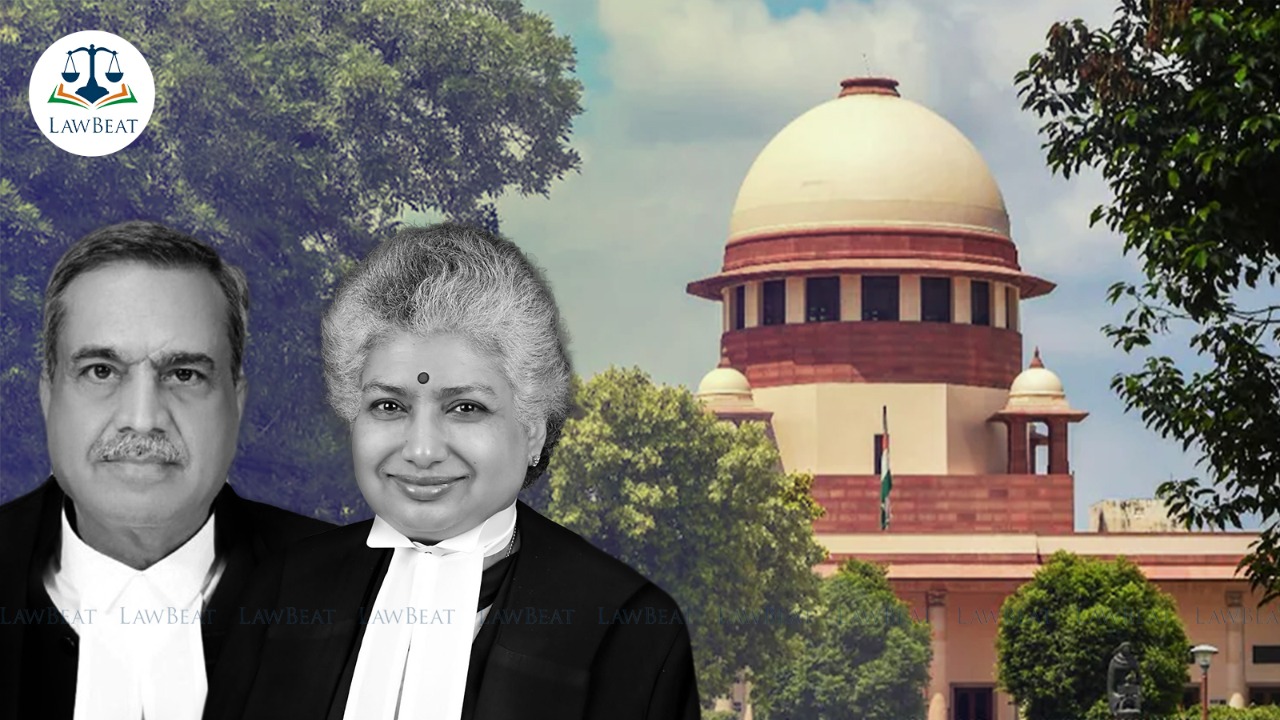In Composite suit for cancellation of sale deed and recovery of possession, limitation period required to be considered w/r to substantive relief of cancellation of sale deed: Supreme Court

The Supreme Court has recently held that when a composite suit is filed for cancellation of the sale deed as well as for recovery of the possession, the limitation period is required to be considered with respect to substantive relief of cancellation of sale deed.
A bench of Justice MR Shah and Justice BV Nagarathna said that the limitation period will be considered with respect to the substantive relief of cancellation of the sale deed, which would be three years from the date of the knowledge of the sale deed sought to be canceled.
The judgment has been pronounced in a plea challenging judgment of the Punjab and Haryana High Court at Chandigarh. The High Court had quashed and set aside the judgment passed by the First Appellate Court and restoring the judgment and decree passed by the Trial Court.
Advocate Ankur Mittal appearing for the appellant Rajpal Singh submitted that he is a victim of the fraud played by the respondent parties, i.e. a husband and wife. It was argued that after obtaining a collusive decree in favor of the wife, the husband had executed a registered sale deed in favor of Singh by taking the full sale consideration of Rs.1,15,000 without disclosing that already a decree had been issued in favour of his wife regards title of the property.
Mittal contended that when on appreciation of evidence, the First Appellate Court by a detailed judgment and order had set aside the judgment and decree passed by the Trial Court and had consequently dismissed the suit filed by the wife, the same was not required to be interfered with by the High Court in exercise of the very limited jurisdiction while deciding the second appeal."
Whereas, Advocate Rudra Pratap appearing for the respondent parties submitted that the High Court had not committed any error.
"At the time when the original defendant No.2(the husband) executed the registered sale deed in favor of the appellant (Singh), he had no valid title given the decree passed in favor of the original plaintiff – wife in Civil Suit of 1994," Pratap said.
Regarding the issue of the suit being barred by limitation, Pratap submitted that in the suit, the original plaintiff (the wife) also prayed for the relief of possession and the suit for relief of possession can be filed within a period of twelve years. Therefore, as the suit was filed within a period of twelve years, the same cannot be said to be barred by limitation, Pratap asserted.
Taking note of the submissions, the bench opined, "When a composite suit is filed for cancellation of the sale deed as well as for recovery of the possession, the limitation period is required to be considered with respect to the substantive relief of cancellation of the sale deed, which would be three years from the date of the knowledge of the sale deed sought to be canceled."
However, the top court held that the suit, which was filed by the original plaintiff (the wife) for cancellation of the sale deed, could not be said to be substantive therefore the same was clearly barred by limitation. "Hence, the Trial Court ought to have dismissed the suit on the ground that the suit was barred by limitation," Court said.
In addition to this, the bench, while setting aside the High Court judgment, noted, "The High Court has committed a grave error in quashing and setting aside a well-reasoned and a detailed judgment and order passed by the First Appellate Court dismissing the suit and consequently restoring the judgment and decree passed by the Trial Court."
The matter pertains to the issue of cancellation of a sale deed wherein, the husband and the present appellant Rajpal Singh entered into a sale agreement in the year 1993. Meanwhile, in 1994, the wife filed a suit against her husband alleging that the property was hers. Her suit was allowed and a decree was issued in her favor in 1995.
Despite this, the husband executed a sale deed with Rajpal Singh in 1996 posing himself as the property owner. The deed was registered in May 1996. Against this, the wife filed a suit against Rajpal Singh after 5 years, seeking cancellation of the sale deed. Trial Court in April 2009 passed a decree in wife's favor holding that on the day of the sale deed, the husband was not the title holder of the property, therefore, the sale deed was illegal and null.
Singh then went to First Appellate Court, which set aside Trial Court's judgment and held that the suit by the wife was barred by limitation. Feeling aggrieved with the same, the wife's legal heirs approached the High court, which overturned First Appellate Court's order and held that Trial Court had decided the suit correctly.
Against this decision of the high court, Singh knocked Top Court's doors alleging that he was the victim of a fraud play by the husband and wife.
Cause Title: Rajpal Singh vs. Saroj (Deceased) Through LRs and Anr
